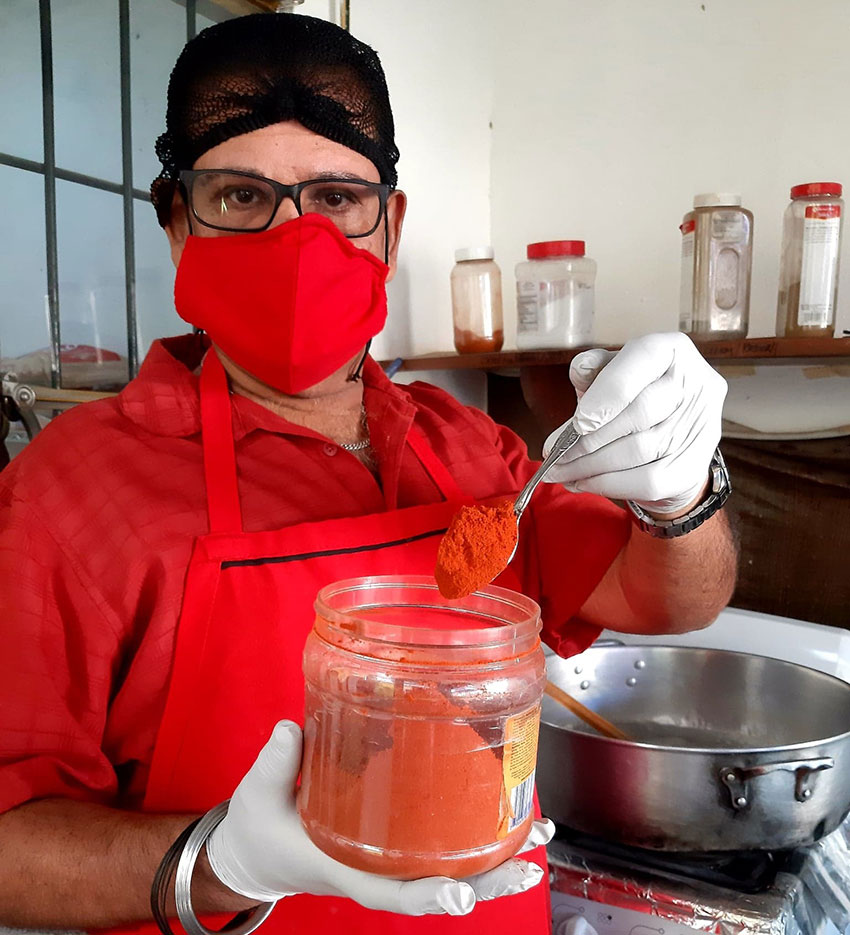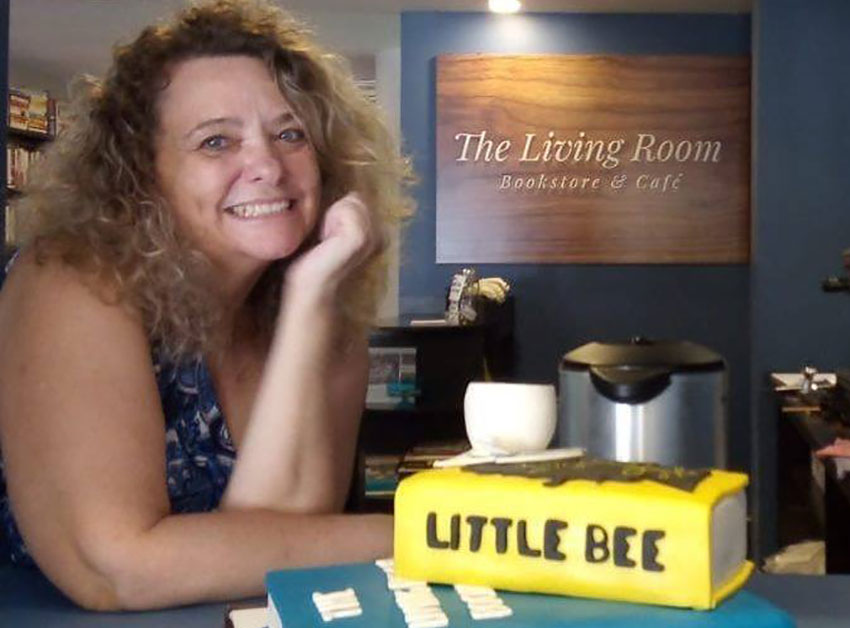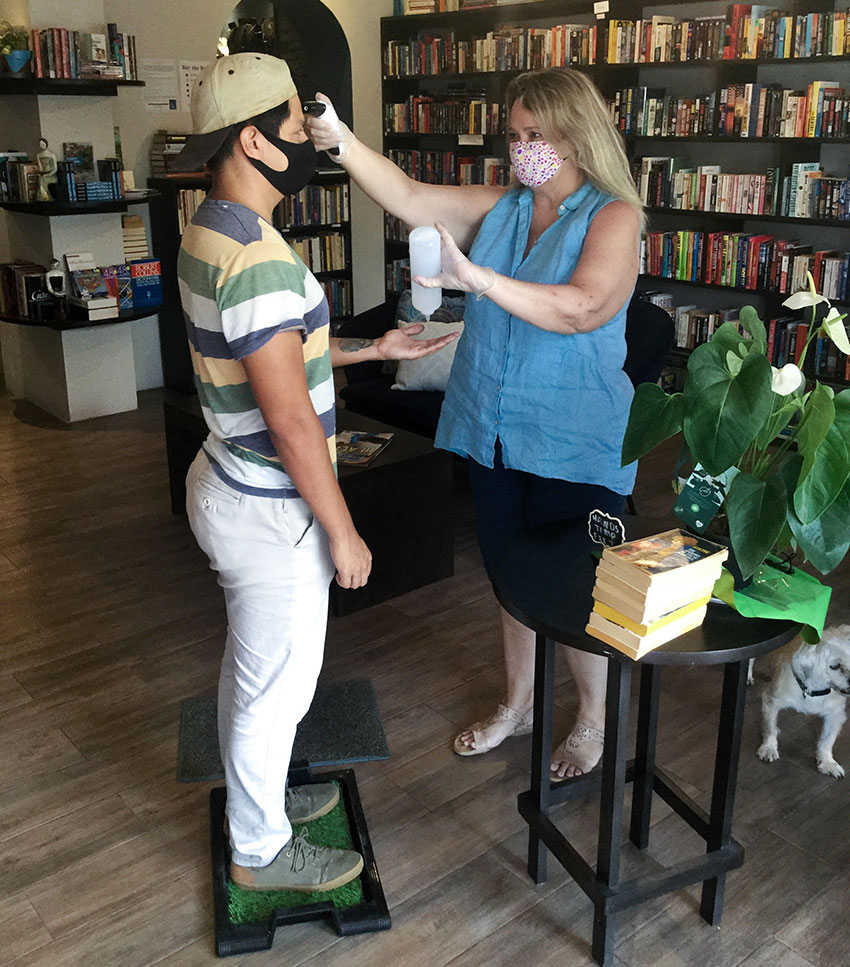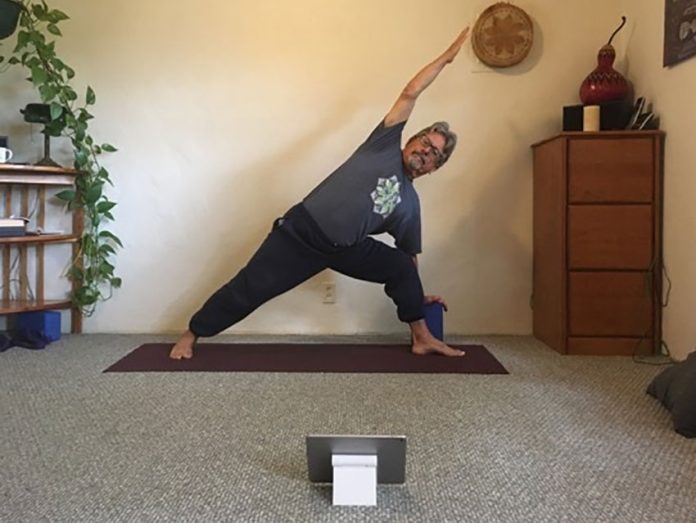The governor says close. The president says stay open. Local authorities say open, but with restrictions. Then they say you should close again.
In the meantime, customers are coming and you and your employees are desperate for income. What’s a business owner to do?
This is the scenario not just in Mexico, but in countries around the globe. It’s a challenge like no other, with no clear path forward. The Mexican government estimates millions of businesses will close, and the economic shocks are already reverberating through communities of every size.
Some business owners have found a silver lining in the midst of all this. Unexpectedly, they’ve discovered or been thrust into new business models they’d never imagined before the coronavirus turned the world upside-down.
Jim Gallas has worked in the healing arts for 30 years, as a yoga and Qi gong teacher and massage therapist. For two decades he’s been splitting his time evenly between Sayulita, Nayarit, and Santa Cruz, California, a lifestyle that affords him “the best of both worlds.” This year, though, everything changed with the arrival of the pandemic.

“By the middle of March, all my work in Sayulita was gone,” he recalled. “Many people left early. Initially we continued classes outside. People had to disinfect their hands, wear masks, be six feet apart. Then it became apparent it was better not to come out.”
Things changed when a student who was tech savvy said he should be online. Within a week of her saying that, Gallas was set up on Zoom.
“I would never have thought of that,” said Gallas. “I’m not oriented that way.”
“There’s a learning curve in teaching to a screen and not seeing my students,” said Gallas, who mutes and turns off participants’ video during class. “I’m used to having hands-on, to be able to look out and see something that needs adjusting.”
People can email questions or ask after class, when he turns the video and sound back on. His students are all around the world, from British Columbia, Canada, to New Zealand. Some had taken his classes in Sayulita or California and others heard of them through mutual friends. Zoom has expanded his ability to offer classes anywhere, to anyone, easily and effectively, he said. And he’s also free to travel, as he can set up his laptop and hold a class anywhere there’s a good WiFi signal. It’s an unexpected bonus to what he’d thought was an untenable situation.
“That’s been a very valuable part of this, to be able to offer a place for people to meet in this way and to see each other, in what I call their Hollywood Square,” said Gallas. “A couple in Florida said this is the best thing they do all week. People absolutely feel like they’re doing something good for themselves.”

Pankaj (Paco) Shingadia was making and selling authentic Indian food at five busy outdoor farmers’ markets in the Puerto Vallarta area each week. His Bites of India was popular and successful, and customers loved his butter chicken, spicy chutneys and naan flatbreads. Although the markets were all seasonal (November to April) he and wife Griselda were happy to have the summers off to relax, do a little catering, visit family or travel.
Unaware of the extent of what was happening with the pandemic in China and Europe, they were taken by surprise as suddenly and without warning the Jalisco and Nayarit state governments shut down all outdoor markets.
“All the markets closed preemptively before the end of the season,” said Shingadia. “We didn’t know that Sunday, March 15, was our last market. The next day we got word from the market managers.”
Since they already had food prepped, they decided to try and sell through Facebook, posting in various expat groups. That first week there was absolutely no response.
“People were reeling,” said Shingadia, who watched Canadians and American friends trying to decide what to do. “They didn’t know if they were coming or going.”
Bites of India offers take-home meals with frozen entrees plus fresh-made Basmati rice, flatbreads, samosas and chutneys. The couple decided to go ahead with full production since they had all the ingredients. This also gave them something to do during a self-quarantine that ended up lasting seven weeks.
As stores began to reopen with safety measures in place, Shingadia started posting on Facebook again, offering home delivery, and this time there was an enthusiastic response from other full-time expats and stranded snowbirds — a new customer base. The couple invested in an FDA-approved professional vacuum sealing machine and are working on making their order system more efficient. Because it’s just the two of them working in a professional kitchen and doing deliveries, overhead is low and they can completely control the protocols, such as masks, gloves and other sanitation measures.
Now, he said, they’re so busy they can barely keep up.
“It’s gone very, very well,” he said. “The last post I did I was overwhelmed.”
Although there’s a chance the markets may reopen in November, Shingadia said this new business model has proven to be a blessing in disguise.
“Who knows what will happen? Will they quarantine again?” he mused. “And even if they reopen, how much tourism will happen? That’s why I want to focus on what I’m doing now.”
The Living Room Bookstore & Cafe was enjoying its first season and had quickly become a popular community gathering place in the Puerto Vallarta marina. As the coronavirus reached Mexico, owner Kelly Casey watched people starting to fly home in mid-March and made the wrenching decision to close on March 20.

“It was scary! People who were always here for the winter were coming in and getting ready to leave,” she said. “So many of the full-timers decided to go home, especially the Canadians, because they had health care there.”
Casey had been saving money for the slower summer season, but used it instead to pay her two employees what they said was the minimum they needed to get by.
“Emotionally this took a huge toll,” she said. “What do I do? Not just about the business, but being away from home, on my own. But you pull yourself together.”
She tried to pivot to go online, but had no electronic inventory of the thousands of used books she’d had shipped from the U.S. Her original plan had been to open other stores in other expat communities around Mexico.
“What this did was make me change my business focus,” said Casey. She hired a software developer to create a database and opened a Shopify account so customers can easily search and pay online. “Now I’m looking at shipping, rather than other brick-and-mortar locations.”
The store and cafe are now open six days a week — until the government closes everything again — and Casey is promoting the store’s new online ordering and sales too.
“All in all, everyone has been very supportive. People are happy I’m back, and they’re happy to get new books,” she said. “We’re going to get through this.”
Mexico News Daily
